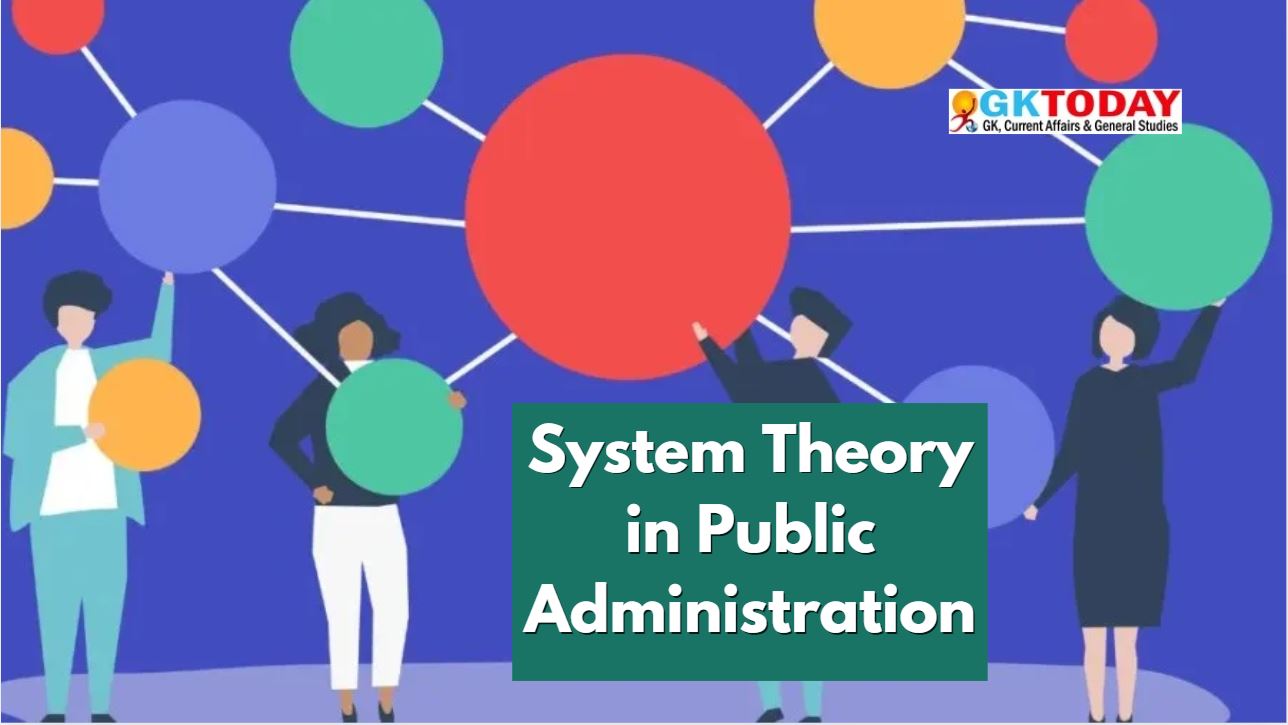System Theory in Public Administration [UGC NTA NET Political Science Notes]
System theory is a vital framework in public administration, offering vital information about how organisations function as interconnected entities. It emphasizes the relationships between various components within a system, rather than focusing solely on individual elements.
Definition of System Theory
System theory is a conceptual framework that views organisations as complex systems composed of interrelated parts. It marks the importance of understanding the connections and interactions between these components. This perspective allows for a more comprehensive analysis of organisational behaviour and performance.
Key Concepts
- System: A set of interrelated components working together towards a common goal.
- Subsystems: Smaller systems within a larger system, each with specific functions and objectives.
- Environment: External factors influencing the system, including social, political, economic, and technological elements.
- Feedback Mechanism: Processes that enable systems to adjust based on performance and environmental changes.
Characteristics of Systems
- Holistic Approach: Focuses on the entire system rather than just its parts.
- Interdependence: Components are interconnected; changes in one part affect others.
- Dynamic Nature: Systems are constantly changing and adapting to their environment.
- Goal-Oriented: Designed to achieve specific objectives.
Types of Systems
- Open Systems: Interact with their environment, exchanging information, resources, and energy. Example – Public organisations that engage with citizens and stakeholders.
- Closed Systems: Do not interact with their environment; operate independently. Such systems are rare in public administration.
Application in Public Administration
System theory has several applications in public administration.
- Organisational Analysis: About how different departments and agencies interact and function as a whole.
- Policy Development: Analysing the impact of policies on various subsystems and the overall system.
- Program Evaluation: Assessing the effectiveness of public programmes through feedback mechanisms.
Key Theorists
Several theorists have contributed to system theory.
- Ludwig von Bertalanffy: Introduced General Systems Theory, emphasising the importance of understanding systems as wholes.
- Daniel Katz and Robert Kahn: Developed the concept of open systems in organisations, focusing on the interaction between organisations and their environments.
- W. Edwards Deming: Advocated for systems thinking in quality management and organisational improvement.
Advantages of System Theory
System theory offers numerous advantages for public administration.
- Promotes a comprehensive understanding of complex organisational dynamics.
- Encourages collaboration and communication among different parts of an organisation.
- Facilitates better decision-making by considering the broader context and interdependencies.
Limitations of System Theory
Despite its benefits, system theory has limitations.
- Can be overly abstract and complex, making practical application challenging.
- May overlook individual behaviours and motivations within the system.
- Risk of oversimplifying the interactions and dynamics of real-world organisations.
Related Concepts
Several concepts are closely related to system theory.
- Systems Thinking: A problem-solving approach that views problems as part of an overall system.
- Cybernetics: The study of systems, control, and communication in animals and machines, applicable to organisational management.
- Complex Adaptive Systems: Systems that adapt and evolve in response to changes in their environment.
Implications for Public Administration
System theory has implications for public administration.
- Encourages a more integrated approach to governance and public service delivery.
- Highlights the importance of stakeholder engagement and collaboration across sectors.
- Supports adaptive management practices in response to changing societal needs and challenges.


